A two-day plenary session of the Asia Pacific Group (APG) of the Financial Action Task Force (FATF)1 was held in Bangkok from 22 May 2018. Pakistan had submitted an action plan on 25 April in line with the decision taken at the February plenary meeting of the FATF to ‘grey list’ it in June this year. Pakistan also sent a high-powered delegation to brief the forum about the steps taken to address the deficiencies in its Anti-Money Laundering (AML)/Counter Financing Terrorism (CFT) regime.
The meeting, however, did not accept the action plan. Instead it asked Pakistan formulate a new comprehensive plan within two weeks to curb terror financing of groups like the Lashkar-e-Toiba (LeT), Jamaat-ud-Dawa (JuD) and Falah-i-Insaaniyat Foundation (FIF) proscribed by the UN Security Council. It cautioned that the country might end up on the black list of the countries’ failing to prevent terror financing in case it did not do so or if the plan was found to be inadequate. Finance Minister Miftah Ismail confirmed that such a plan would be submitted between 08-11 June. This new action plan would be discussed at the plenary meet of the FATF to be held in Paris on 23 June.
The grey list identifies the ‘jurisdictions with strategic anti-money laundering/countering the financing of terrorism deficiencies for which they have developed an action plan with the FATF’. Since Pakistan in February 2018 had not yet worked out the proposed plan with the FATF it was not put on the grey list right away. It was given the opportunity to develop a plan that was considered and rejected in May. If the FATF approves the revised plan that Pakistan is supposed to submit between 08-11 June it will make a formal announcement about Pakistan being placed on the grey list. However, if Pakistan does not submit a revised plan, or if the FATF does not accept it, Pakistan can be placed on the black list, along with North Korea and Iran.
This will not be the first time Pakistan finds itself on the grey list, having spent three years on it between 2012 and 2015. However, this time around it comes against the backdrop of unraveling ties between Pakistan and the global community, particularly the United States. Pakistan could thus well find itself becoming an international financial pariah. Grey listing – with the possibility of being black listed – will increase Pakistan’s risk profile and seriously affect the banking sector since international transactions will become difficult. Foreign banks would be chary of transacting with a grey listed country apprehending that they too could be accused of money laundering. Given the precarious state of Pakistan’s economy, dependent as it is on foreign bailouts and a possible IMF package, grey listing would have adverse implications.
Black listing would have even more serious consequences: Pakistan could find its linkages with the global economy disrupted. International financing for private and public sectors will become extremely difficult impacting trade and exports. This could have a cascading affect on the Pak rupee.
Pakistan would, no doubt, look towards its ‘all-weather’ patron China for bailouts. However, currently China has problems of its own with a looming trade war with the US and spiraling debt. How much China would like to go against the global trend for Pakistan’s sake is debatable.
In February 2018, just prior to the FATF meeting, a Presidential Ordinance was issued amending the Anti-Terrorism Act, 1997 to freeze all assets of the JuD and its charity arm, the FIF. However, they were not put in Schedule 1 of the Act under which the leaders of a banned organisation must be arrested. They were put in the section that dealt with freezing and taking over of assets (movable, immovable and human resource) of banned organisations. This again showed Pakistan’s insincerity in being serious about its commitments. Moreover, the fact that these efforts fell short of what was required was highlighted in a letter that the Pakistan Foreign Secretary wrote to Interior Minister Ahsan Iqbal and Minister for Finance and Revenue and Economic Affairs Miftah Ismail prior to the Bangkok meeting. In it she expressed concerns that the government had not taken demonstrable measures to ensure that these entities could no longer carry out fundraising and operations on their own.2
At the time of writing, Pakistan’s action plan is likely to fall short of FATF requirements for several reasons.
First, one of the 40 recommendations formulated by the APG to bring Pakistan’s framework against money laundering and terror financing in line with the global body’s requirements was notifying an authority with powers to initiate an investigation and carry out prosecution under the Anti-Money Laundering Act (AMLA), 2010.
By a statutory regulatory order, SRO-611, issued on 09 June 2016 Pakistan had notified the Directorate General Intelligence & Investigation (DG I&I) of Inland Revenue as the relevant authority. It had been empowered to initiate proceedings against people who had possibly laundered tax-evaded money. However, the Lahore High Court (LHC) struck down the notification in January 2018 on the grounds that the order did not have cabinet approval. Interestingly, despite this, the cabinet refused to approve the notification before the Pakistan Muslim League (Nawaz) (PMLN) government completed its term on 31 May 2018. It would be interesting to see how the caretaker government responds to this situation.
Second, in its last budget, the outgoing government had notified a tax amnesty scheme, something that the FATF had raised concerns about. The government’s defence was that the scheme would not apply to funds that were the proceeds of crime and had been laundered. However, the powers to make this determination rested with the DG I&I that were struck down by the LHC pending cabinet approval. Since the cabinet approval was not obtained, the powers of the DG I&I stood suspended. One result of this was that more than 270 influential persons accused of laundering tax-evaded money could not be proceeded against. This has been noted by the FATF and is likely to greatly weaken Pakistan’s case.
Third, LeT/JUD chief Hafiz Saeed continues to address public meetings in Pakistan. The JuD has set up a political front, the Milli Muslim League (MML), that has already contested a few by-elections and would be contesting the forthcoming general and provincial elections. Likewise, 26/11 Mumbai attacks mastermind and top LeT commander Zaki-ur Rehman Lakhvi resurfaced in February 2018 after being released on bail by the LHC in 2015. He has been seen collecting funds.
Fourth, in its annual assessment of serious and organised crime released in May 2018, the National Crime Agency (NCA) of UK has listed Pakistan among the top three sources for money laundering into the country. The other two countries are Nigeria and Russia. The report has identified trade wrong invoicing as one of the key mechanisms used for such operations and investment in UK property, particularly in London, as an attractive mechanism to launder funds. This too would have been noted by the FATF.
Overall, Pakistan’s strategy appears to be to rely on foreign policy initiatives, support from friends and to cry conspiracy instead of addressing the root of the problem. The reason, as the Express Tribune puts it, is that: ‘these ‘entities of concern’ [LeT, JuD, FIF] are strategic assets; they have a current utility in keeping India off balance in Kashmir though they have become a liability in the wider context that Pakistan now finds itself in.’ Speaking in New York in September 2017 the then foreign minister, Khawaja Asif, acknowledged this saying: “I accept that they [the terrorists] are liabilities but give us time to get rid of them because we don’t have the assets to match these liabilities.”3
The world, however, is growing tired of Pakistan’s excuses on terror and perhaps unwilling to countenance them any longer. Though there are no signs that the army is willing to disengage the terrorists, for Pakistan, the writing is clearly on the wall.
References
1. The FATF is the global standard setting body for anti-money laundering and combating the financing of terrorism (AML/CFT).
2. Tahir Niaz, ‘’Foreign secy suggests taking over JuD, FIF operations, The Nation, 21 May 2018, https://nation.com.pk/21-May-2018/foreign-secy-suggests-taking-over-jud-fif-operations, (accessed 01 June 2018).
3. ‘Dodging the blacklist’, edit in The Express Tribune, 26 May 2018. https://tribune.com.pk/story/1719070/6-dodging-the-blacklist/ (accessed 01 June 2018).
(The paper does not necessarily represent the organisational stance. The author certifies that the article/paper is original in content, unpublished and it has not been submitted for publication/web upload elsewhere, and that the facts and figures quoted are duly referenced, as needed, and are believed to be correct).
(The paper does not necessarily represent the organisational stance... More >>
Image Source: https://i.ytimg.com/vi/zxGiSS1Zm-0/maxresdefault.jpg

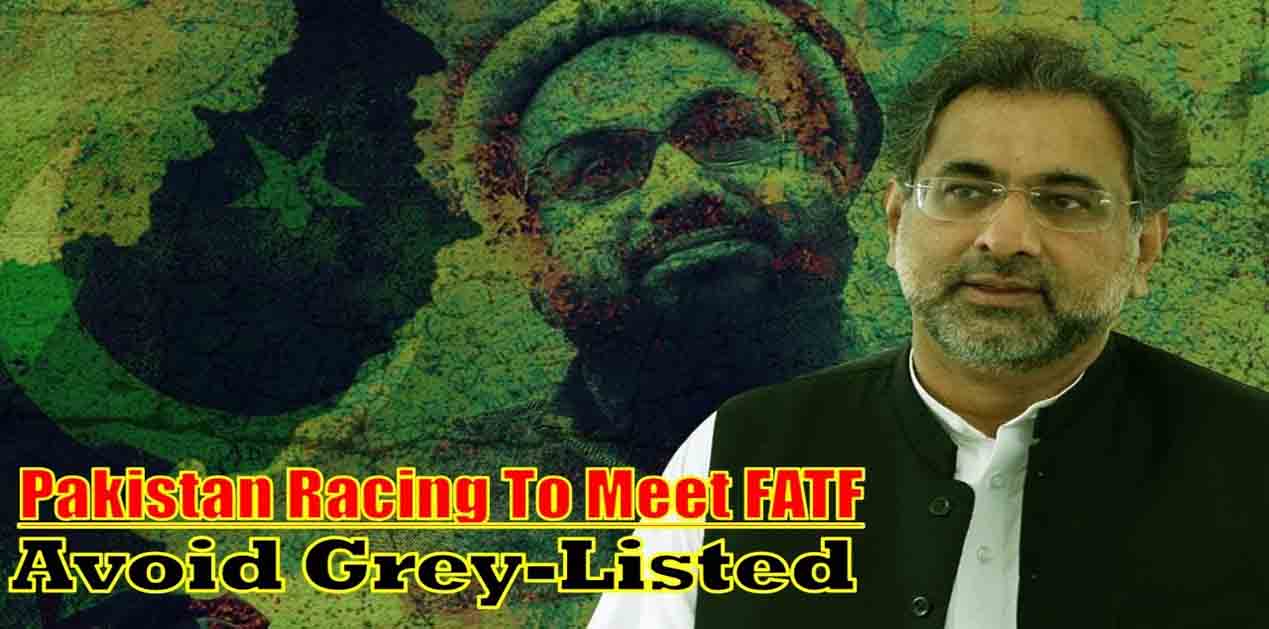
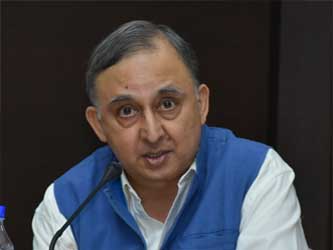

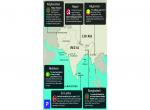
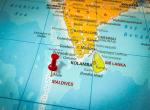


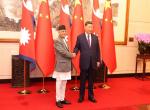
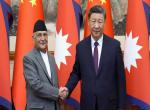

Post new comment